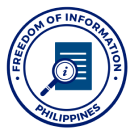Assalamualaikum.
Madayaw ug maayong adlaw kaninyong tanan.
Magandang araw sa inyong lahat.
First, the Department of Education stands with the most profound optimism that we will be able to surmount the challenges that are besetting Philippine basic education.
Our confidence is coming from the support of most members of the Senate and Congress to the reforms that we have laid down to resolve learning difficulties.
And are also inspired by our partners from the sectors of academe, research centers, non-government organizations, private groups, international agencies, private individuals, and local government units.
Some of them are here today.
We are joined by some friends from Congress and Senate and other partners — and we wholeheartedly express our gratitude to you.
Daghang salamat.
This Language and Inclusion Summit underscores our collective task of mainstreaming inclusive education.
This brings us to the reality of the complexity of the basic education landscape.
We are not only here to ensure the efficient, effective, equitable, and timely delivery of basic education to Filipino children.
We are also here to ensure that education is inclusive. That it embraces everyone. That it ends the culture of othering.
I believe that basic education only becomes truly meaningful and effective if we can put inclusivity at the center of what we do — if we only make inclusivity the heart and the soul of our reforms and efforts to improve basic education.
This means that our MATATAG Agenda does not forget, discriminate against, or disregard Indigenous Peoples or our Lumad brothers and sisters, our Muslim communities, or people with disabilities.
Their emancipation from the conditions that have made their lives difficult — compared to other sectors — will only happen through our conscious effort to pull them right into the center of what we do as a community of education stakeholders.
Our programs should lift them up, take them away from the sidelines, bail them out from their conditions of hardships and poverty, and ultimately — help them improve their lives.
We shall end this culture of othering that is injurious to people outside of our social status or those who belong to the minority or disadvantaged sectors.
It is encouraging to see you with us today to address this matter.
This is a testament to your dedication and willingness to work with the Department of Education and realize our dreams and aspirations for Filipino learners.
We reaffirm our commitment to the Sustainable Development Goals, the UNESCO Convention against Discrimination in Education, and the Education 2030 Framework for Action, which emphasize inclusion and equity as the foundation for quality education.
We hope to see our IP or Lumad learners, Muslim learners, and PWD learners experience the same learning experience we provide other learners.
We want them to be a part of the school community. When harnessed properly, they bring unique insights, ideas, and perspectives to nation-building programs.
We are grateful for the signing into law of Republic Act 11650 in 2022, also known as “Instituting a Policy of Inclusion and Services for Learners with Disabilities in Support of Inclusive Education Act.” The passage of the said law is indeed a milestone for inclusive education in our country.
In support of Republic Act 11650, and even years ahead of said legislation, the Department of Education issued and implemented inclusive policies, namely:
• DepEd Order No. 23, series of 2022, or the Child Find Policy for Learners with Disabilities Towards Inclusive Education;
• DepEd Order No. 045, series of 2021, which tackles the Policy Guidelines on the Selection of and Minimum Requirements for the Conversion of Certain Schools with SPED Centers into Prototype Inclusive Learning Resource Centers;
• and DepEd Order No. 29, series of 2018, or the Multi-Factored Assessment Tools for learners identified with red flags.
As a result, thirty-two (32) SPED Centers have been converted into Inclusive Learning Resource Centers or ILRCs.
However, we are not stopping here because truthfully, these are not enough.
DepEd aims to convert and construct more ILRCs and make them functional to provide appropriate intervention to all learners.
To operationalize ILRCs, we need a multidisciplinary team to manage and provide appropriate services to learners with disabilities.
DepEd has presented to the Department of Budget and Management the need for additional ILRC personnel to fully operate these ILRCs.
On the other hand, the Alternative Learning System (ALS), which was institutionalized through Republic Act 11510, improves access to basic education in the underserved and disadvantaged sectors.
Through ALS, DepEd can provide opportunities for out-of-school youth and adult learners to develop basic and functional literacy and to access equivalent pathways to complete basic education.
As a second-chance education program, it empowers out-of-school youth and adult learners to continue learning in a manner, time, and place suited to their preferences and circumstances.
To date, 695,894 learners have been enrolled in the Basic Literacy Program and Accreditation and Equivalency in Elementary and Junior High School Level, while 24,524 ALS Senior High School students have been enrolled in different tracks in selected public schools.
The Bureau of Alternative Education continues to produce ALS teaching and learning resources, conducts capacity-building activities for ALS implementers, and establishes ALS Community Learning Centers.
In the case of our Madrasah Education Program, we prioritize the integration of Arabic Language and Islamic Values Education (ALIVE) in public madaris or schools and K to 12 Basic Education Curriculum in private madaris.
Madrasah emphasizes the study of Arabic, which is the language of the Quran, and a critical component of Islamic studies.
Through the study of Arabic, learners develop their language and literacy skills and gain a deeper understanding of the Islamic faith and its teachings.
Arabic Language and Islamic Values Education classes emphasize the importance of reading and writing, particularly in Arabic, in which learners learn to read and write Arabic scripts, thus improving their language, literacy, and numeracy skills.
The Madrasah Education Program is expected to provide equitable access and opportunities as well as appropriate high-quality basic education programs and services for Muslim learners.
The Department of Education continues to provide culture-based education across all grade levels, in partnership with local IP communities, ensuring that national standards and cultural knowledge are learned together for the holistic development of indigenous people’s learners.
To ensure the delivery of quality education to Indigenous People, DepEd created the Indigenous Peoples Education Office in 2011.
To date, the IP education program, or IPEd, has been implemented in 16 regions and 121 divisions.
Currently, over 75 IP languages are being used as the medium of teaching and learning as appropriate, contributing to the increase in IP learners who are now openly embracing their IP identity, as reflected in the DepEd enrollment data.
Language and inclusion are closely intertwined. Using a language that a learner can speak or understand promotes a sense of belonging and pride in the latter’s culture, which we believe is critical in ensuring learning motivation and promoting engagement.
An inclusive education system recognizes and values the diversity of learners’ backgrounds, experiences, perspectives, and languages.
Our learners are given access to education in their first language, which they can easily understand. And by the way, when I speak of languages, I also refer to the Filipino Sign Language.
The United Nations Secretary-General Antonio Guterres acknowledges that children and youth face prejudice on a variety of grounds, including the neglect of their first language.
Learners cannot learn what they do not understand.
We strongly believe in and promote this in the Department of Education.
To avoid further marginalizing learners who are already weak and disadvantaged, educators must make multilingual education a key component of strategic intervention.
Marami na tayong nagawa sa larangan ng inclusive education. Subalit malayo pa po ang ating tatahakin.
Patuloy nating palalawigin ang ating mga nasimulan sa iba’t ibang inclusive education programs. We have made significant strides to strengthen our inclusion programs, and we vow to continue these efforts until everything is in place for our learners to flourish, so that they have equal opportunities to learn, grow, and be in a positive and non-threatening environment.
With the MATATAG Agenda Bansang Makabata and Batang Makabansa in place, I trust that we will not only drumbeat for synchronized efforts of DepEd and external stakeholders to break the barriers in education but more importantly, put a premium on supporting our teachers so that inclusive education can happen in every classroom.
I humbly ask our teachers to maintain their fervor in teaching. May you serve our learners in disadvantaged situations with compassion.
We reaffirm our MATATAG commitments dedicated to language and inclusion:
• To improve English proficiency while recognizing linguistic diversity. We will work towards the goal of English language proficiency within the context of a multilingual nation.
• To review the implementation of the Mother Tongue-based Multilingual Education Policy guided by the principle that, among others, learners learn when taught in a language that they understand.
• To continue with the establishment of Inclusive Learning Resource Centers (ILRCs).
• To provide assistive mechanisms such as audio-assisted technology, braille, and large-print test materials to disabled students. We will introduce digital textbooks for certain core subjects in senior high schools.
• To work with regional offices and our partners to facilitate the development of learning resources for special needs learners, specifically visually and hearing-impaired learners.
• To ensure that all school-age children, youth, and adults in disadvantaged situations participate in inclusive basic learning opportunities and receive appropriate quality education.
• To undertake initiatives to provide schooling to many more children and youth in situations of disadvantage, regardless of gender, abilities, psycho-emotional and physical conditions, cultural and religious identity, and socioeconomic standing.
• To strengthen our inclusive education programs, including the alternative learning system, last-mile schools, and programs for IP learners, learners with disabilities, and Muslim learners. We will endeavor for all learners, regardless of their backgrounds, to afford quality learning opportunities and services.
We will continue to live in our faith that education is a great enabler rather than a great divider.
Any noble undertaking, however, cannot succeed if performed single-handedly. Therefore, I appeal to the collective effort of stakeholders to have our sights set on an active call for inclusion.
To all of us, let us never dim the lights of inclusive education.
Before I end, I would like to express my sincere gratitude to the Curriculum and Teaching Strand of the Department for making this summit of language and inclusion possible.
To the Bureau of Learning Delivery, Bureau of Curriculum Development, Bureau of Learning Resources, Bureau of Education Assessment, Bureau of Alternative Education, and Literacy Coordinating Council thank you for your tireless efforts. Your hard work and dedication are recognized and I am deeply grateful for all that you have been doing.
My heartfelt gratitude also goes to all our educators, policymakers, advocates, and stakeholders who have joined us today to participate in this crucial conversation about language and inclusion.
Your presence and contributions to this summit demonstrate your commitment to fostering a more equitable and just society in which every learner has the opportunity to thrive and succeed.
Mananatili tayong MATATAG tungo sa pagtamo ng ating mga mithiin. Marami pa tayong magagawa dahil patuloy tayong BUONG DANGAL na kikilos para sa kabataang Pilipino.
Ang lahat – para sa Diyos, sa Bayan, at sa bawat pamilyang Pilipino.
Shukran.



